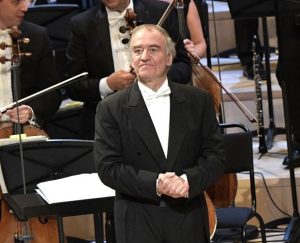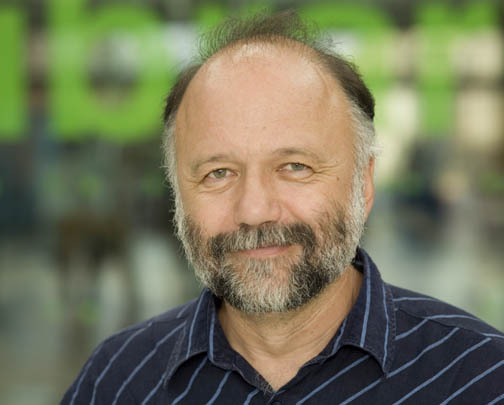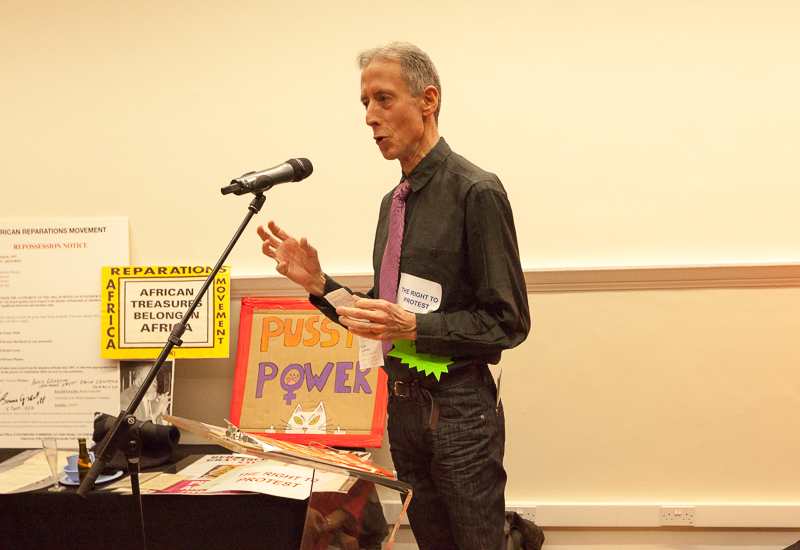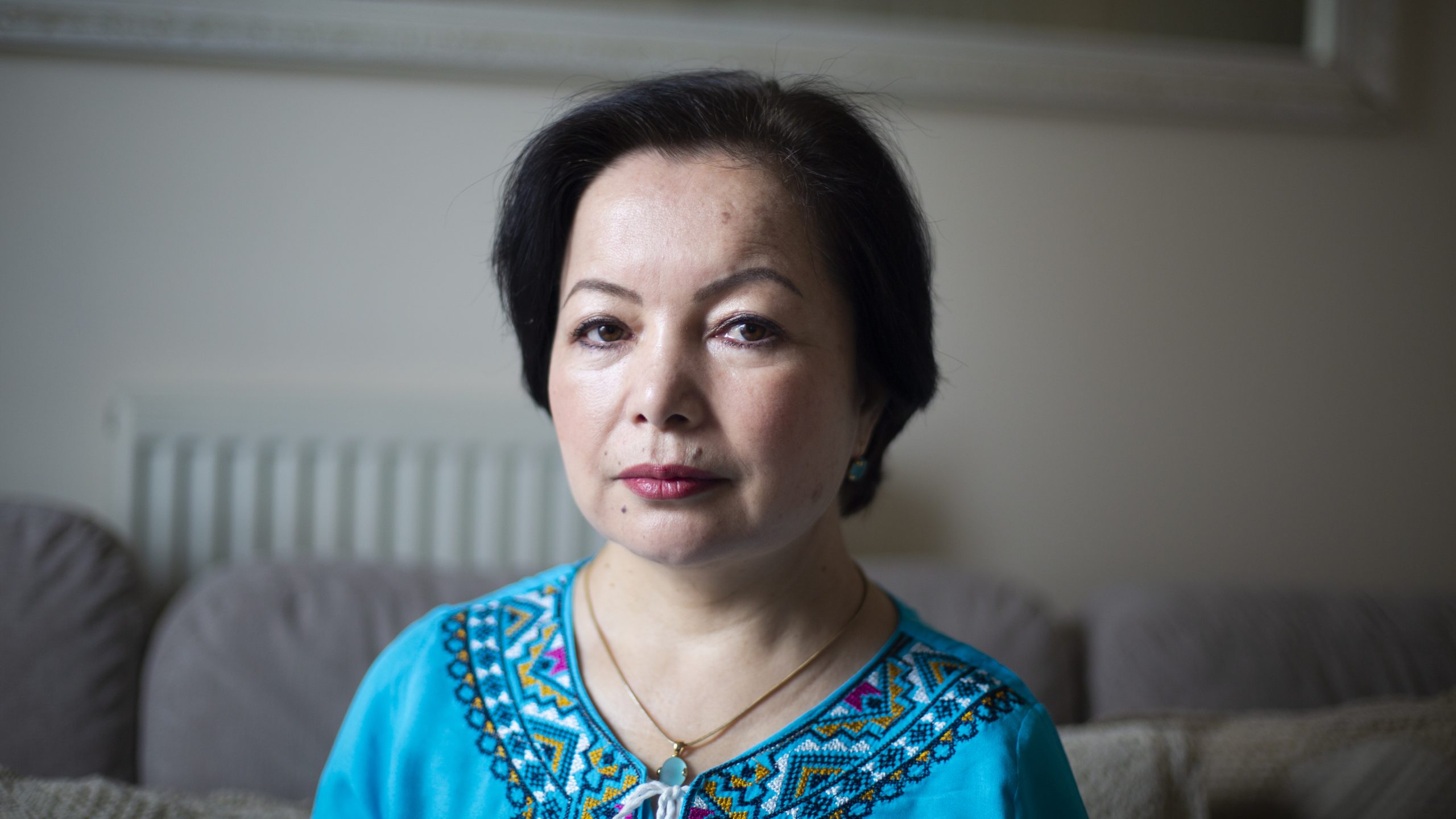23 Jun 2022 | News and features, Russia, Ukraine, Volume 51.02 Summer 2022, Volume 51.02 Summer 2022 Extras

Artistic director of the Mariinsky Theatre Valery Gergiev at the opening of the Zaryadye Concert Hall. Photo: www.kremlin.ru
Since the war started, Ukraine has become a magnet for the global media. As the war has progressed, its voice has become stronger in cultural matters, too. Ukraine has emerged from the shadows of its murderous “brother” and thrust itself into the western imagination, bleeding, yet stoic, full of raw emotion. It stopped being “the Ukraine”. “Kiev” became “Kyiv.”
Western intellectuals and the public suddenly started browsing Wikipedia pages on Ukraine’s history, trying to dissect reasons for its obstinance in the face of the enemy.
The Russia-Ukraine war has many layers. It’s a war of democracy versus authoritarianism. It is a war of blatant propaganda versus principled journalism. It is also a classical colonial war of a metropolis against one of its former subjects. A liberation struggle, extending into the realm of history and culture.
There’s a growing consensus among Ukraine’s cultural elites that this war should become a point of no-return for Russia trying to impose its imperial blueprint on the perception of history and culture of this region, both domestically and internationally.
In the early days of the war, as the first Russian rockets hit the Ukrainian capital, Ukrainian Institute, a young state institution with a mandate to promote Ukraine’s standing in the world through cultural diplomacy instruments, published a manifesto, calling on international partners to stop cooperation with Russia’s state cultural institutions. Similar to weaning itself off Russian energy, the West needs to stop thoughtlessly consuming Russian cultural products, without contextualising them, the Institute said.
As Russian artillery pound Ukrainian cities, London’s leading museums continue feeding the narrative about great Russian culture and history to their audiences. “Fabergé in London: Romance to Revolution”opened at the V&A shortly before the invasion. It profiles “craftsmanship and luxury” of Carl Fabergé, the jeweller of the Russian imperial family. The backdrop of the story is Russia’s imperial history and close ties between both monarchies.
There has since been a pivot. British museums are suddenly showing more willingness towards giving Ukraine agency. London’s National Gallery reviewed its stance on a Degas canvas in its permanent collection, depicting a swirl of dancers in a distinctly Ukrainian traditional attire. “Russian Dancers” became “Ukrainian Dancers”. Tate Modern is currently working on a new exhibition project with Ukraine as its focus, the first of its kind in its history.
Ukraine’s cultural elites and scholars worldwide are determined to seize this moment and to shift the paradigm where imperial hierarchies persist. As it has stood the histories of big countries, mostly former empires, and their cultural figures and phenomena matter more than those of their colonial subjects. This explains why there are so few centres for Ukrainian Studies in the UK (Cambridge being the notable exception), so few translations of Ukrainian literature. No exhibitions in major museums, up until now.
“We cannot cancel Russian culture.” “Pushkin cannot be held responsible for Putin.” “We cannot exclude Russian artists from being invited to residencies and collaborative projects.” “It’s illiberal.” “It smacks of censorship.” These are the arguments often deployed by many intellectuals and creatives in the West. Let us address these concerns one by one.
Placing Russia at the centre of any cultural conversation should not happen without clear articulation of the fact that Russia has used culture for the purposes of aggressive political propaganda internationally. Culture is a broad reflection of the society it represents, and currently Russian society stands largely united behind an ideology promoting violence and blatant untruths.
The new consensus should go beyond the outcome of the Ukraine-Russia conflict and should be about realisation that cultural discourse is unfairly skewed in favour of big and powerful countries, denying many voice and agency. And Ukraine is not alone here.
Our perception of one’s culture is often shaped by a sheer fact of its presence on the cultural scene: through books, theatre productions, films and exhibitions. We often forget that there’s a powerful state machinery propping up this presence and that rogue states – and Russia has become one – weaponise culture and history to political ends, and even use them as a pretext to start a war. To be remembered, the Russian intent behind the killings in Ukraine is to “de-Nazify” the country.
Artists and academics often lack a toolkit to study and bring to the fore cultures previously absent from the discourse. These cultures are absent or underrepresented not for the reasons of uninteresting or lacking value. They are absent because of entrenched cultural hierarchies, intellectual laziness, lack of courage to work with original sources, as well as a long history of suppression of their culture and language by the metropolis.
It is intellectually dishonest and arrogant to place Ukrainian and “good” Russian artists on the same footing by inviting them to speak at the same panel discussion or to apply for funding, for the sake of “reconciliation” and “dialogue”. There can be no reconciliation while the war is still on. It can only start happening after Russia has admitted its guilt and paid reparations for the damage done. Any other framework would mean perpetuation of the colonial discourse.
For another view, read Maria Sorenson’s article as she calls for artists to unite in their opposition to authoritarian regimes and an end to the blanket boycott of Russian culture.
22 Jun 2022 | Afghanistan, Africa, Americas, Asia and Pacific, Belarus, China, Europe and Central Asia, European Union, Hungary, India, Kenya, Magazine, Magazine Contents, Philippines, Poland, Russia, Turkey, Ukraine, United Kingdom, United States, Volume 51.02 Summer 2022 Extras
The summer issue of Index magazine concentrated its efforts on the developing situation between Russia and Ukraine and consequential effects around Europe and the world.
We decided to give voice to journalists, artists and dissidents who chose to respond to this ruthless war. At the same time, we didn’t forget other attacks on freedoms that haven’t been covered around the globe as much as they should.[/vc_column_text][vc_custom_heading text=”Up front”][vc_column_text]Joining Ukraine’s battle for freedom, by Jemimah Steinfeld: We must stand with the bold and brave against Putin.
The Index: A global tour of free expression, departing from the poll booth and arriving at the journalists reporting under Taliban rule.[/vc_column_text][vc_custom_heading text=”Features”][vc_column_text]Fifty years of pride and prejudice, by Peter Tatchell: Following the rise and
corporate fall of London’s march for LGBT rights, will grassroots voices rise again?
India’s meaty issue, by Aishwarya Jagani: When a burger comes with a side of oppression.
Cartoon, by Ben Jennings: Art imitates life, caveman style.
My three years of hell in an Uyghur ‘re-education’ camp, by Gulbahar Hatiwaj and Rahima Mahmut: As the world stays silent, hear the truth from inside China’s brutal concentration camps.
One step ahead of the game, by Chen Dan: Media criticism of the Chinese government is all part of the power play.
Welcome to the kingdom of impunity, by Michael Deibert: The landscape is dangerous for journalists in Haiti. Murders and kidnappings are a daily risk.
Politically corrected? By Issa Sikiti da Silva: The banned words the Kenyan
government doesn’t want to hear in this election year.[/vc_column_text][vc_custom_heading text=”Special report: The battle for Ukraine”][vc_column_text]Losing battle for truth in Russian lecture halls, by Ilya Matveev: The war has put a new strain on academic freedom. A Russian lecturer laments his lost classroom.
Don’t be afraid to say two plus two is four, by Mark Frary and Alla Gutnikova: As a convicted student journalist speaks out for freedom, do Russian dissidents once again face the gulag?
Emotional baggage, by Slavenka Drakulic: How it feels to pack up a life in Ukraine and become a refugee.
Back to the future, by Martin Bright: The world has been turned
upside down for Ukrainian reporters, and this is their new landscape.
On not being shot, by John Sweeney: Amidst the Kremlin-wrought
wreckage, do we need a new era of journalism?
Russia’s trojan horse moves closer to Europe, by Viktória Serdult: In Hungary, Putin’s right-hand man and Europe’s right-wing firebrand wins again.
Turkey’s newfound russophilia, by Kaya Genç: Putinism is seeping into Turkey, and it spells trouble for future freedoms.
Divided by age and a tv screen, by Hanna Komar: How do you make sure your
family see the truth when they’re blinded by Kremlin propaganda? A Belarus activist speaks out.
Culture in the cross hairs, by Andrey Kurkov: Decades after Soviet rule, Ukrainian culture is once again under threat, as are the lives behind the creative expression.
Bordering on media control, by Kseniya Tarasevich: False information about
Ukraine finds fertile breeding ground in Poland.
Treat tragedies of the Ukraine war with dignity, by Olesya Khromeychuk: The grieving hearts left behind when death becomes news fodder.
Worth a gamble, by Jemimah Steinfeld: When telling the truth is a crime, turn to a criminal spam operation.[/vc_column_text][vc_custom_heading text=”Comment”][vc_column_text]
Cancel Putin, not culture, by Maria Sorenson: Banning Russian artists assumes
that they are all collaborators of the Russian state and goes against artistic freedoms.
Beware the ‘civilisation’ battle, by Emily Couch: Why Europe must reject
anti-Asian racism to fully stand with Ukraine.
The silent minority, by Ruth Smeeth: A tribute to those whose work never saw the light of day.[/vc_column_text][vc_custom_heading text=”Culture”][vc_column_text]‘The light is no longer the light it used to be’, by Lyuba Yakimchuk: The poet on children being indoctrinated and the elderly disorientated in Russia-occupied Ukraine.
A cassandra worth heeding, by Dominic Cavendish: Murdered Russian journalist
Anna Politkovskaya, whose dispatches from Chechnya should be put in the spotlight.
Poetic injustice, by Stephen Komarnyckyj: History is repeating itself
on the pages penned by Ukrainian writers.
Banking on Russia’s poetic spirit, by Maria Bloshteyn and Yulia Fridman: A “piggy bank” of Russian poetry is fighting on the right side of Putin’s war.
Metaphors and madness, by Eduardo Halfon: In Guatemala, truth is best expressed through fiction.
Metal shows its mettle, by Guilherme Osinski: A heavy metal band labelled
“satanic” by Iran is free from prison and taking back the microphone.
America’s coming crucible, by Jo-Ann Mort: Women in the USA might soon be in the dark about their own bodies.
22 Jun 2022 | Events
Join Index on Censorship and Pushkin House for a night discussing freedom of expression in Russia as part of the launch of the latest issue of Index on Censorship magazine.
The 2022 summer magazine looks at how the Russian invasion in Ukraine impacts freedoms within Ukraine and across Europe, Turkey and Russia. While the pages are filled with stories of brave and brilliant people speaking up and out, many write on the growing challenges for freedom of expression. This is especially the case for those living in Russia under Vladimir Putin. This will be the topic of our discussion for the launch.
Featuring a panel of people with direct experience and knowledge of Russia under Putin, the evening will address how much freedom there is in Russia right now, particularly in relation to media freedom and protest.
The panel will include Russian investigative journalists Andrei Soldatov and Irina Borogan, as well as Ben Noble, Associate Professor in Russian Politics at University College London. The conversation will be chaired by Index on Censorship magazine Editor-In-Chief Jemimah Steinfeld. The event will also include a reading of a passage written by the late Russian journalist Anna Politkovskaya, who was murdered in Moscow in 2006.
A wine reception will follow.
This event is free, but seats are limited. Advanced booking is essential. Register for your ticket here.
MEET THE SPEAKERS
 Andrei Soldatov is a Russian investigative journalist, co-founder, and editor of Agentura.ru, a watchdog of the Russian secret services’ activities.
Andrei Soldatov is a Russian investigative journalist, co-founder, and editor of Agentura.ru, a watchdog of the Russian secret services’ activities.
He is co-author with Irina Borogan of The New Nobility. The Restoration of Russia’s Security State and the Enduring Legacy of the KGB (PublicAffairs, 2010), The Red Web: The Struggle Between Russia’s Digital Dictators and the New Online Revolutionaries (PublicAffairs, 2015) and The Compatriots: The Brutal and Chaotic History of Russia's Exiles, Émigrés, and Agents Abroad (PublicAffairs, 2019).
 Irina Borogan is a Russian investigative journalist, co-founder and deputy editor of Agentura.ru, a watchdog of the Russian secret services’ activities. She chronicled the Kremlin's campaign to gain control of civil society and strengthen the government's police services under the pretext of fighting extremism.
Irina Borogan is a Russian investigative journalist, co-founder and deputy editor of Agentura.ru, a watchdog of the Russian secret services’ activities. She chronicled the Kremlin's campaign to gain control of civil society and strengthen the government's police services under the pretext of fighting extremism.
She is co-author with Andrei Soldatov of The New Nobility. The Restoration of Russia’s Security State and the Enduring Legacy of the KGB (PublicAffairs, 2010), The Red Web: The Struggle Between Russia’s Digital Dictators and the New Online Revolutionaries (PublicAffairs, 2015) and The Compatriots: The Brutal and Chaotic History of Russia's Exiles, Émigrés, and Agents Abroad (PublicAffairs, 2019).
 Dr Ben Noble is Associate Professor of Russian Politics at University College London (UCL SSEES) and an Associate Fellow of Chatham House. His research focuses on legislative politics, authoritarianism, and Russian domestic politics, with awards from The Leverhulme Trust, the Political Studies Association, and the British Academy. His co-authored book Navalny: Putin’s Nemesis, Russia’s Future? (Hurst and Oxford University Press, 2021) has so far been translated into eight languages, was selected by the Financial Times as one of the best books on politics in 2021, and has been shortlisted for the Pushkin House Book Prize in 2022. Ben frequently provides commentary and analysis on Russian politics for academic, policy, media, and general audiences.
Dr Ben Noble is Associate Professor of Russian Politics at University College London (UCL SSEES) and an Associate Fellow of Chatham House. His research focuses on legislative politics, authoritarianism, and Russian domestic politics, with awards from The Leverhulme Trust, the Political Studies Association, and the British Academy. His co-authored book Navalny: Putin’s Nemesis, Russia’s Future? (Hurst and Oxford University Press, 2021) has so far been translated into eight languages, was selected by the Financial Times as one of the best books on politics in 2021, and has been shortlisted for the Pushkin House Book Prize in 2022. Ben frequently provides commentary and analysis on Russian politics for academic, policy, media, and general audiences.
 Jemimah Steinfeld is the editor-in-chief at Index on Censorship. Prior to Index she lived in China. She is the author of the book Little Emperors and Material Girls: Sex and Youth in Modern China, and has written for a variety of publications, including The Guardian, The Telegraph, The Independent, CNN, New Statesman and openDemocracy. She can be found tweeting @JFSteinfeld.
Jemimah Steinfeld is the editor-in-chief at Index on Censorship. Prior to Index she lived in China. She is the author of the book Little Emperors and Material Girls: Sex and Youth in Modern China, and has written for a variety of publications, including The Guardian, The Telegraph, The Independent, CNN, New Statesman and openDemocracy. She can be found tweeting @JFSteinfeld.
When: Monday 18 July 2022, 7pm
Where: Pushkin House, 5a Bloomsbury Square, London WC1A 2TA





 Andrei Soldatov
Andrei Soldatov  Irina Borogan
Irina Borogan Dr Ben Noble
Dr Ben Noble Jemimah Steinfeld
Jemimah Steinfeld